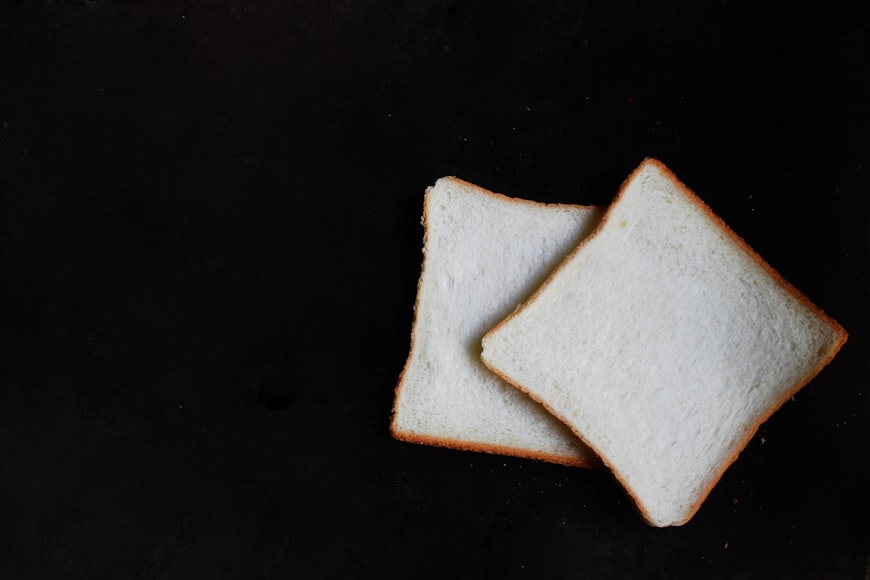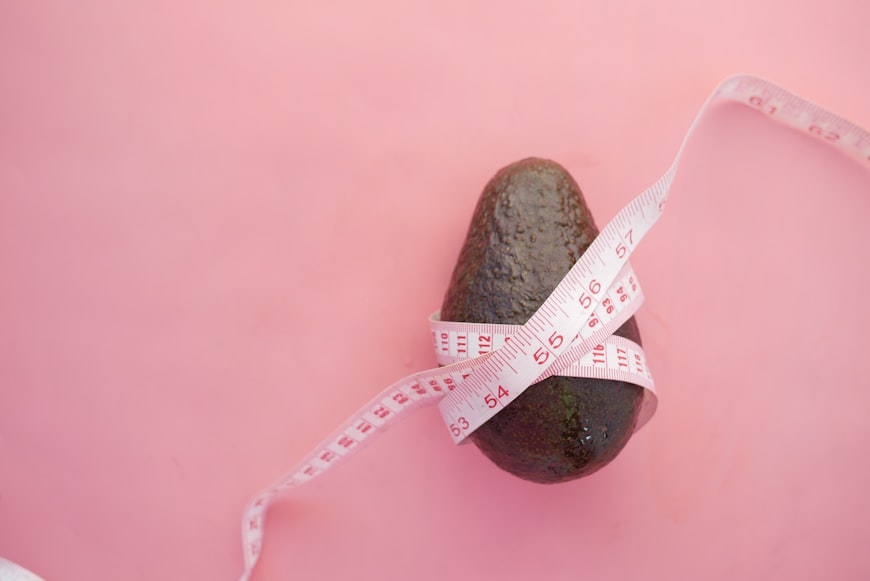How to Feed a Dog with Kidney Disease

Kidney disease is a common condition in dogs, especially as they age. When the kidneys are damaged, they are unable to properly filter waste products from the blood. This can lead to a buildup of toxins in the body, which can cause a variety of health problems.
One of the most important things you can do for a dog with kidney disease is to feed them a healthy diet. The right diet can help to slow the progression of the disease and improve your dog’s quality of life.
What to Feed a Dog with Kidney Disease
The best diet for a dog with kidney disease is one that is:
- Low in protein. Protein is essential for dogs, but too much protein can put a strain on the kidneys. A diet that is low in protein will help to reduce the amount of waste products that the kidneys need to filter.
- High in fiber. Fiber helps to keep the digestive system moving, which can help to prevent constipation. Constipation can be a problem for dogs with kidney disease because it can lead to a buildup of toxins in the body.
- Low in sodium. Sodium can increase blood pressure, which can put a strain on the kidneys. A diet that is low in sodium will help to keep blood pressure under control.
- High in water. Water helps to flush toxins from the body and keep the kidneys hydrated. A diet that is high in water will help to keep your dog’s kidneys healthy.
How Much to Feed a Dog with Kidney Disease
The amount of food you feed your dog will depend on their size, activity level, and stage of kidney disease. It is important to talk to your veterinarian about the best feeding schedule for your dog.
Feeding Tips
- Feed your dog small meals throughout the day instead of one large meal. This will help to reduce the strain on the kidneys.
- Make sure your dog has access to fresh water at all times.
- Avoid giving your dog table scraps or other high-sodium foods.
- If your dog is not eating well, talk to your veterinarian. They may need to prescribe medication or recommend a different diet.
By following these tips, you can help your dog with kidney disease live a long and healthy life.
Consult with a Veterinarian:

Kidney disease is a common condition in dogs, and it can have a significant impact on their health and well-being. One of the most important things you can do to help your dog manage kidney disease is to feed them a healthy diet.
Consult with a Veterinarian
Before making any changes to your dog’s diet, it’s important to consult with a veterinarian. They can help you determine the type and severity of kidney disease your dog has, as well as their nutritional requirements. Your veterinarian may also recommend specific foods or supplements that can help support your dog’s kidneys.
Dietary Considerations
The goal of a diet for a dog with kidney disease is to reduce the amount of work that the kidneys have to do. This means feeding your dog a diet that is:
- Low in protein: Protein is essential for dogs, but too much protein can be hard on the kidneys. A diet for a dog with kidney disease should contain no more than 15-20% protein.
- Low in sodium: Sodium can also be hard on the kidneys. A diet for a dog with kidney disease should contain no more than 100-200 mg of sodium per day.
- High in fiber: Fiber can help to slow down the absorption of nutrients from the food, which can help to reduce the amount of work that the kidneys have to do.
- High in water: Water is essential for dogs with kidney disease, as it helps to flush out toxins from the body. Make sure your dog has access to plenty of fresh water at all times.
Food Choices
There are a number of different foods available that are specifically designed for dogs with kidney disease. These foods are typically low in protein, sodium, and phosphorus, and they may also contain added fiber and water.
Some good food choices for dogs with kidney disease include:
- Royal Canin Renal Support Diet
- Hill’s Prescription Diet k/d Kidney Care
- Purina Pro Plan Veterinary Diets NF Kidney Function
- Iams Proactive Health Kidney Care
Feeding Frequency
Dogs with kidney disease may need to eat more frequent meals than healthy dogs. This is because their kidneys are not as efficient at filtering out waste products, so they need to eat more often to stay hydrated and to prevent the build-up of toxins in the body.
Supplements
In addition to a healthy diet, your dog may also benefit from taking certain supplements. Some common supplements for dogs with kidney disease include:
- Omega-3 fatty acids: Omega-3 fatty acids can help to reduce inflammation and support the kidneys.
- Antioxidants: Antioxidants can help to protect the kidneys from damage.
- B vitamins: B vitamins are essential for dogs, and they can help to support the kidneys and other organs.
Monitoring Your Dog’s Health
It’s important to monitor your dog’s health closely once they have been diagnosed with kidney disease. This means taking them to the veterinarian for regular checkups and blood tests. Your veterinarian will be able to monitor your dog’s kidney function and make adjustments to their diet and medication as needed.
Conclusion
Feeding a dog with kidney disease can be a challenge, but it’s important to remember that a healthy diet can help to improve your dog’s quality of life and longevity. By following the tips in this article, you can help your dog manage their kidney disease and live a long and happy life.
Reduce Protein Intake:

Kidney disease is a common condition in dogs, and it can be life-threatening if not properly managed. One of the most important aspects of managing kidney disease is diet. The right diet can help to slow the progression of the disease and improve your dog’s quality of life.
What to Feed a Dog with Kidney Disease
The best diet for a dog with kidney disease is one that is low in protein, phosphorus, and sodium. Protein is important for maintaining muscle mass, but too much protein can put a strain on the kidneys. Phosphorus is also important for bone health, but too much phosphorus can lead to kidney stones. Sodium can cause the body to retain water, which can worsen kidney disease.
There are a number of commercial dog foods that are specifically designed for dogs with kidney disease. These foods are low in protein, phosphorus, and sodium, and they can help to keep your dog’s kidneys functioning properly. You can also feed your dog a homemade diet that is low in these nutrients.
How Much to Feed a Dog with Kidney Disease
The amount of food you feed your dog will depend on its size, activity level, and stage of kidney disease. A good rule of thumb is to feed your dog about 2.5% of its ideal body weight per day. So, for example, a 50-pound dog would need to eat about 1.25 cups of food per day.
When to Feed a Dog with Kidney Disease
It is important to feed your dog small meals throughout the day, rather than one or two large meals. This will help to prevent your dog from getting too hungry or too full, which can both put a strain on the kidneys.
What Not to Feed a Dog with Kidney Disease
There are a number of foods that you should avoid feeding a dog with kidney disease, including:
- High-protein foods: These foods can put a strain on the kidneys and worsen the disease.
- Phosphorus-rich foods: These foods can lead to kidney stones and other complications.
- Sodium-rich foods: These foods can cause the body to retain water, which can worsen kidney disease.
- Salty snacks: These snacks are high in sodium and can be harmful to dogs with kidney disease.
- Sugary foods: These foods can lead to weight gain and other health problems.
Supplements for Dogs with Kidney Disease
There are a number of supplements that can help to support the kidneys of dogs with kidney disease. These supplements include:
- Omega-3 fatty acids: These fatty acids have anti-inflammatory properties that can help to protect the kidneys.
- Antioxidants: These nutrients can help to protect the kidneys from damage.
- Potassium citrate: This supplement can help to reduce the acidity of the urine, which can help to prevent kidney stones.
Monitoring Your Dog’s Kidney Disease
It is important to monitor your dog’s kidney disease regularly to ensure that the treatment is working and that the disease is not progressing. Your veterinarian will recommend a schedule for blood tests and urine tests to monitor your dog’s kidney function.
Conclusion
Feeding a dog with kidney disease can be a challenge, but it is important to follow your veterinarian’s recommendations carefully. By following these tips, you can help to keep your dog’s kidneys functioning properly and improve its quality of life.
Choose High-Quality Protein Sources:

Kidney disease is a common condition in dogs, especially as they age. When the kidneys are damaged, they are unable to filter waste products from the blood as effectively, which can lead to a number of health problems. One of the most important things you can do for a dog with kidney disease is to provide a healthy diet.
Choose High-Quality Protein Sources
Protein is an essential nutrient for dogs, but it is also important to choose high-quality sources that are easily digestible. Lean meats, poultry, and eggs are all good choices. Avoid fatty meats, as they can be difficult for the kidneys to process.
Limit Phosphorus and Sodium
Phosphorus and sodium are two minerals that can be harmful to dogs with kidney disease. Phosphorus can accumulate in the blood and lead to a condition called hyperphosphatemia, which can cause bone problems and other health issues. Sodium can also contribute to high blood pressure, which can put further strain on the kidneys.
Provide Plenty of Water
Water is essential for all dogs, but it is especially important for dogs with kidney disease. Water helps to flush out toxins from the body and prevent dehydration, which can worsen kidney function.
Avoid Certain Foods
There are certain foods that you should avoid feeding a dog with kidney disease. These foods include:
- Grapes and raisins
- Onions and garlic
- Avocados
- Macadamia nuts
- Dairy products
- Salty snacks
- High-fat foods
Feed Small Meals Frequently
Feeding your dog small meals frequently throughout the day can help to reduce the workload on the kidneys. This is because the body does not have to process a large amount of food at once.
Monitor Your Dog’s Weight
It is important to monitor your dog’s weight regularly. If your dog is losing weight, it may be a sign that their kidney disease is progressing.
Talk to Your Veterinarian
Your veterinarian is the best source of information on how to feed a dog with kidney disease. They can recommend a specific diet that is tailored to your dog’s individual needs.
By following these tips, you can help to provide your dog with the best possible nutrition and improve their quality of life.
Restrict Sodium and Phosphorus:

Kidney disease is a common health condition in dogs that can lead to various complications if not managed properly. One essential aspect of kidney disease management is controlling the dog’s diet to reduce the burden on the kidneys and slow the progression of the disease. A key component of this diet is restricting sodium and phosphorus intake.
Why Restrict Sodium and Phosphorus?
- Sodium: High sodium levels can increase blood pressure and put extra strain on the kidneys.
- Phosphorus: Excess phosphorus can lead to mineralization in the kidneys, further damaging the renal tissue.
Dietary Recommendations
To restrict sodium and phosphorus intake, consult with your veterinarian for a specialized diet that meets your dog’s individual needs. Some general dietary guidelines include:
- Low-sodium diet: Aim for a diet with less than 100mg of sodium per 100kcal.
- Low-phosphorus diet: Limit phosphorus intake to 150-200mg per 100kcal.
- Protein restriction: In some cases, protein restriction may be necessary to reduce the production of waste products that the kidneys must filter.
Specific Food Ingredients to Avoid
Certain food ingredients are high in sodium or phosphorus and should be avoided or limited in a dog’s diet with kidney disease. These ingredients include:
- Processed meats (e.g., bacon, sausage, hot dogs)
- Dairy products (e.g., milk, cheese, yogurt)
- Organ meats (e.g., liver, kidneys)
- Bones (especially chicken or pork bones)
- Fish with bones (e.g., sardines, salmon)
- Legumes (e.g., beans, peas)
- High-phosphorus supplements (e.g., calcium supplements)
Feeding Strategies
- Measure food carefully: Accurately measure your dog’s food to ensure they are not consuming excessive amounts.
- Divide meals: Break down daily food intake into smaller, more frequent meals to reduce strain on the kidneys.
- Monitor water intake: While it’s important to provide your dog with access to plenty of fresh water, excessive water intake can flush out essential electrolytes.
Additional Tips
- Choose homemade diets: Preparing meals at home allows you to control sodium and phosphorus levels more precisely.
- Read food labels carefully: Pay attention to the ingredient list and nutritional information on commercial dog food products.
- Work with your veterinarian: Regular veterinary check-ups and blood tests are crucial to monitor your dog’s kidney function and adjust the diet as needed.
By adhering to these dietary guidelines, you can help reduce the burden on your dog’s kidneys, slow the progression of kidney disease, and improve their overall health and well-being.
Provide Ample Water:
Kidney disease is a common health issue in dogs, affecting their ability to filter waste products from the blood. A proper diet is crucial for managing this condition and improving the dog’s quality of life.
Principles of a Kidney Disease Diet
- Restrict protein: High protein intake can overwork the kidneys, which could lead to further damage.
- Reduce phosphorus: Excess phosphorus binds to calcium and forms crystals in the kidneys.
- Limit sodium: High sodium levels can worsen dehydration and put strain on the heart.
- Provide adequate fluids: Hydration is essential to support kidney function.
Dietary Recommendations for Dogs with Kidney Disease
1. Commercial Kidney Disease Diets
- Specially formulated diets provide restricted protein, phosphorus, and sodium.
- Veterinarians may recommend specific brands or formulas based on the dog’s individual needs.
2. Homemade Kidney Disease Diets
- Require careful monitoring and veterinary supervision.
- Include lean protein sources such as chicken, fish, or tofu.
- Use low-phosphorus foods like sweet potatoes, brown rice, and apples.
- Avoid high-sodium ingredients like processed meats and table salt.
3. Feeding Schedule
- Divide daily portions into smaller, more frequent meals.
- Feed gradually throughout the day to avoid overwhelming the kidneys.
- Avoid overfeeding to prevent protein overload.
4. Provide Ample Water
- Encourage water consumption to maintain hydration, as kidney disease can dehydrate the body.
- Offer fresh water in multiple bowls throughout the house.
- Consider adding a flavor enhancer to make water more appealing.
5. Monitor Body Weight
- Regular weighing helps track the dog’s condition and nutritional status.
- Weight loss can indicate inadequate nutrition, while weight gain may suggest fluid retention.
6. Supplement with Potassium
- Potassium levels may drop in dogs with kidney disease.
- Veterinarians may prescribe potassium supplements to maintain proper electrolyte balance.
7. Avoid Certain Foods
- High protein foods: Meat, poultry, fish (unless part of a kidney disease diet)
- High phosphorus foods: Dairy products, organ meats, processed foods
- High sodium foods: Table salt, processed meats, canned foods
- Grapes and raisins: Toxic to dogs
Conclusion
Feeding a dog with kidney disease requires a personalized approach that considers the dog’s individual needs and veterinary recommendations. By following these principles and dietary guidelines, pet owners can support their dog’s health and well-being while managing this challenging condition.
Consider a Low-Potassium Diet:
Kidney disease is a common ailment among dogs, and it’s essential to provide proper nutrition to support their health and well-being. Feeding a dog with kidney disease requires careful consideration, and here’s how you can ensure your furry friend receives the right nutrients:
Consider a Low-Protein Diet:
Protein is essential for dogs, but excessive protein intake can overwork the kidneys. A low-protein diet helps reduce the workload on the kidneys and prevent the accumulation of nitrogenous waste products.
Choose High-Quality Protein Sources:
When selecting protein sources, opt for high-quality proteins that are easily digestible. Animal-based proteins such as chicken, fish, and eggs are excellent choices. Avoid low-quality protein sources like soy and corn gluten, as they can contain high levels of phosphorus and potassium.
Monitor Phosphorus Intake:
Phosphorus imbalance can worsen kidney disease. Limit foods high in phosphorus, such as dairy products, certain vegetables (e.g., broccoli, carrots), and organ meats. Consult with your veterinarian to determine the ideal phosphorus intake for your dog.
Reduce Sodium Intake:
Excessive sodium can raise blood pressure, which can further strain the kidneys. Opt for low-sodium treats and avoid processed foods.
The Importance of Potassium:
Potassium is a crucial mineral for dogs, but in advanced stages of kidney disease, a low-potassium diet may be necessary to prevent hyperkalemia (high potassium levels). Consult with your veterinarian to determine if a low-potassium diet is appropriate for your dog.
Potassium Binders:
Potassium binders are medications that help reduce potassium levels in the blood. Your veterinarian may prescribe potassium binders if your dog’s potassium levels are elevated.
Hydration:
Adequate water intake is essential for dogs with kidney disease. Encourage your dog to drink plenty of water by providing fresh water regularly and consider using a water fountain to entice them to drink.
Avoid Certain Foods:
Certain foods can worsen kidney disease. Avoid feeding your dog grapes, raisins, onions, garlic, macadamia nuts, and chocolate, as they can be toxic to dogs with kidney disease.
Feed Small, Frequent Meals:
Dividing your dog’s daily food into smaller, more frequent meals can help reduce the workload on their kidneys.
Monitor Your Dog’s Weight:
Monitor your dog’s weight regularly. Kidney disease can lead to weight loss or muscle loss, so maintaining a healthy weight is essential.
Work with Your Veterinarian:
It’s crucial to work closely with your veterinarian when feeding a dog with kidney disease. They can monitor your dog’s condition, adjust the diet as needed, and provide guidance on supplements or medications that may be beneficial.
Remember, feeding a dog with kidney disease requires attention to detail and a focus on providing the right nutrients to support their health. By following these recommendations and working with your veterinarian, you can help your furry friend manage their kidney disease effectively and enjoy a comfortable life.
Add Potassium Binders:
Kidney disease is a common and serious condition in dogs, and diet plays a crucial role in managing it. Here’s a comprehensive guide on how to feed a dog with kidney disease:
1. Consult with a Veterinary Nutritionist:
It’s essential to consult with a veterinary nutritionist to determine the best diet for your dog’s specific needs. A certified specialist can recommend a tailored plan that meets their individual requirements.
2. Choose a Low-Protein Diet:
Kidney disease dogs need a reduced intake of protein to prevent further damage to their kidneys. Look for diets with approximately 14-18% protein.
3. Limit Phosphorus:
Phosphorus can bind with calcium and lead to complications. Choose diets with less than 0.5% phosphorus on a dry matter basis.
4. Monitor Sodium Intake:
While sodium restriction is not always necessary, certain cases may require it. A veterinary nutritionist can advise on whether your dog needs a low-sodium diet.
5. Provide Adequate Potassium:
Potassium is an essential mineral that can be lost in dogs with kidney disease. Offer a diet with moderate potassium levels (around 0.3-0.6% on a dry matter basis).
6. Add Potassium Binders:
If a low-potassium diet is not sufficient, potassium binders can be added to the food to absorb excess potassium from the digestive tract.
7. Avoid Certain Foods:
Certain foods can be harmful to dogs with kidney disease, including:
- Foods high in phosphorus (e.g., dairy products, organ meats)
- Foods high in sodium (e.g., processed meats, salty snacks)
- Foods high in protein (e.g., red meat, poultry)
- Foods high in potassium (e.g., bananas, avocado)
8. Offer Small, Frequent Meals:
Divide the recommended daily food intake into smaller, frequent meals to reduce the strain on the kidneys.
9. Encourage Water Intake:
Encourage your dog to drink plenty of water to help flush out toxins and maintain hydration.
10. Monitor Weight and Body Condition:
Regularly monitor your dog’s weight and body condition to ensure they are maintaining an appropriate weight.
11. Make Dietary Changes Gradually:
Avoid making sudden dietary changes, as this can lead to digestive upset. Introduce new foods gradually over a few days.
12. Be Patient and Consistent:
Managing a dog’s kidney disease requires patience and consistency. Follow the veterinarian’s recommendations closely and monitor your dog’s progress.
By adhering to these guidelines, you can help manage your dog’s kidney disease and improve their overall well-being. Remember to consult with a veterinary nutritionist for personalized advice and support throughout the journey.
Monitor Bloodwork Regularly:
Kidney disease is a common health issue in dogs, especially as they age. This condition can affect the dog’s ability to filter waste products from the blood, leading to a buildup of toxins. If left untreated, kidney disease can be fatal.
Proper nutrition plays a crucial role in managing kidney disease in dogs. Here’s a comprehensive guide on how to feed a dog with this condition:
1. Consult a Veterinarian:
Before making any changes to your dog’s diet, consult with your veterinarian. They can assess the severity of the kidney disease, determine any specific dietary needs, and recommend the best course of action.
2. Choose a Kidney-Friendly Diet:
- Low-Protein Diet: Dogs with kidney disease require a low-protein diet to reduce the workload on their kidneys. Opt for foods that contain 15-20% protein.
- Restricted Phosphorus: Phosphorus can accumulate in the body and increase kidney stress. Choose foods with limited phosphorus content (less than 0.5%).
- Reduced Sodium: High sodium intake can elevate blood pressure and increase fluid retention. Select foods with low sodium levels (less than 0.2%).
3. Consider Homemade Diet:
If possible, consider preparing homemade meals for your dog. This allows you to control the ingredients and ensure they meet your dog’s specific needs. Consult with a veterinary nutritionist for a balanced recipe.
4. Supplement with Omega-3 Fatty Acids:
Omega-3 fatty acids have anti-inflammatory properties and may help protect the kidneys from damage. Add fish oil or flaxseed oil to your dog’s diet as a supplement.
5. Steer Clear of Salt:
Do not add any additional salt to your dog’s food. Limit treats and avoid salty snacks like chips and pretzels.
6. Avoid Certain Foods:
Foods high in potassium, phosphorus, and sodium should be avoided. These include:
* Dairy products
* Egg yolks
* Liver
* Nut products
* Spinach
* Broccoli
7. Portion Control and Meal Frequency:
Divide your dog’s daily food intake into smaller meals throughout the day (3-4 meals). This helps reduce the amount of toxins the kidneys need to process at once.
8. Offer Plenty of Water:
Encourage your dog to drink plenty of water to help flush out toxins and support kidney function.
9. Monitor Bloodwork Regularly:
Closely monitor your dog’s bloodwork to assess kidney function and adjust the diet as needed.
Additional Tips:
- Introduce dietary changes gradually to avoid digestive upset.
- Be patient and consistent with the diet.
- Observe your dog for any signs of improvement or worsening.
- Provide a comfortable and supportive environment for your dog.
Feeding a dog with kidney disease requires a tailored approach and close collaboration with your veterinarian. By adhering to these guidelines, you can help manage your dog’s condition and provide them with the best care possible.
Feed Small, Frequent Meals:
Kidney disease is a common condition in dogs, especially as they age. When a dog’s kidneys are not functioning properly, they cannot filter waste products from the blood as effectively. This can lead to a buildup of toxins in the body, which can cause a variety of health problems.
One of the most important things you can do for a dog with kidney disease is to feed them a healthy diet. The right food can help to slow the progression of the disease and improve your dog’s quality of life.
Here are some tips on how to feed a dog with kidney disease:
1. Feed small, frequent meals.
Divide the daily food into smaller portions and offer them more frequently to reduce stress on the kidneys and improve nutrient absorption.
2. Choose a high-quality diet.
Look for a diet that is high in quality protein and low in phosphorus, sodium, and calcium. These nutrients can all be hard on the kidneys.
3. Avoid foods that are high in fat.
Fat can be difficult for dogs with kidney disease to digest.
4. Make sure your dog has plenty of water.
Water is essential for flushing out toxins from the body.
5. Monitor your dog’s weight.
Dogs with kidney disease can lose weight easily. Make sure to monitor your dog’s weight and adjust their food intake accordingly.
6. Talk to your veterinarian.
Your veterinarian can help you develop a feeding plan that is right for your dog’s individual needs.
Following these tips can help you to provide your dog with the best possible nutrition and support their health as they manage kidney disease.


















